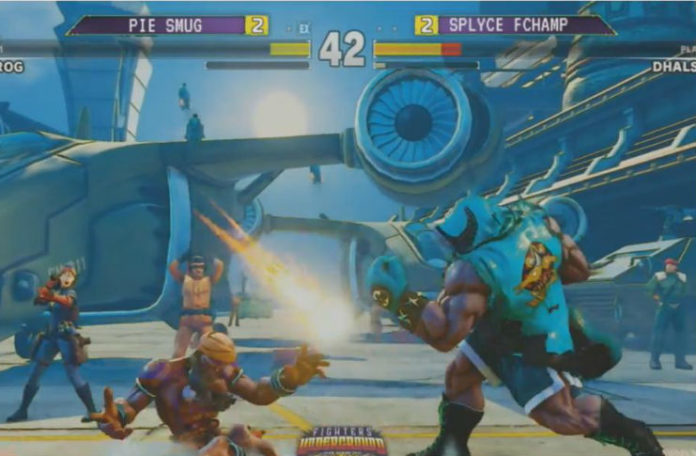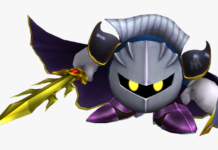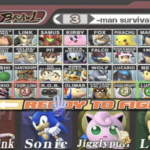“Footsie (footsy, or footsies) is a flirting game where two people touch feet under a table or otherwise concealed place, often as a romantic prelude.” is how Wikipedia defines “footsies,” and that has dick-all to do with why you’re here. The REAL footsies only occasionally involves feet, and it is an essential part of learning how to play fighting games.
But what are footsies anyways? How did they come about and why are they so important to the fighting game meta? We’ve got you covered right here.
What Are Footsies?
If you were to define footsies in the simplest way, you would say that it’s a battle for space. The term was originally used to describe ground-based, mid-range play, which revolved around using character movement and normals to try and bait the opponent and create openings.
The concept of footsies is so huge that you can’t really pin it down in a specific way. It encompasses all of the important fighting game ideas: spacing, baiting, zoning, whiff punishes, corner pressure, the list goes on and on. Your understanding of footsies will only grow as you continue to learn and master various aspects of fighting games.
For starters though, it’s essential to learn about three key components when it comes to battling for space:
- Baiting
- Whiff punishes
- Mixups
Baiting is done through a combination of movement and throwing out quicker, safer normals. The idea is that you want to be in complete control of your character and put yourself in a position where you seem vulnerable. Ideally, your opponent will try to punish you and you’ll be able to avoid it and capitalize on their missed attack.
Whiff punishes are exactly what they sound like: punishing the opponent for a whiffed move. But there’s a reason why this is so essential to master; when a character throws out a move, their hurtbox is extended to the area where they just attacked. If you can time it properly, you can barely dodge an attack and then hit where their attack just was, and it will register as if you hit them normally.
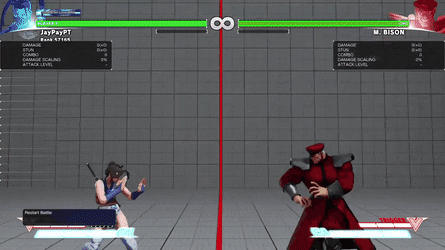
Putting these together, you can sort of see how a battle for space would play out: two players are moving back and forth, tossing out safe moves to try and bait one another to attack. One player finally commits and either:
- Lands a hit and goes into advantage
- Whiffs and either gets punished/goes into disadvantage, or the situation resets
But if you use limited tools in neutral, your opponent will eventually pick up on this and choose the options that you simply don’t have the answer for. The solution is mixups. Mixups are when an opponent expects you to choose a certain option, either because it’s considered a strong option or because you have previously done it before, and then you choose a different option. A basic example would be:
- Player A likes to do a standing medium kick when they walk in.
- Player B knows this, so when Player A starts walking in, Player B blocks
- Player A, rather than doing a standing medium kick, opts to grab Player B
Mixups aren’t always done on reaction; rather, you get them from recognizing situations over time and also reading what your opponent does and downloading information on them. Footsies is a great way to get a read on how the opposing player likes to react to different situations.
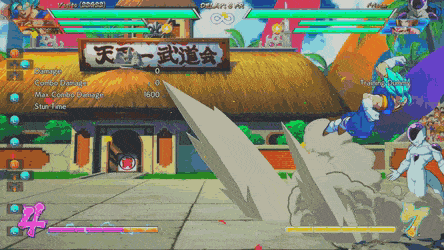
Why Are Footsies Important?
When you think about fighting games, you think of big hits and devastating combos. But you can practice combos until the end of time and still get thrashed constantly by more experienced players. Understanding the importance of controlling space in fighting games is key to being able to make the most of your practice and execution.
Footsies are an essential part to elevating your game; by understanding how to battle for space by using your opponent’s strengths against them, you can effectively control the pace of the match, and by consistently winning different exchanges, you can get in the opposing player’s head.
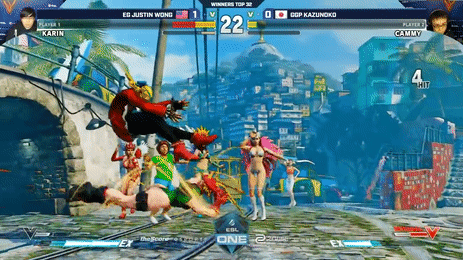
This is probably one of the more important aspects of understanding footsies: the mental game. So much of fighting games is the mental fight between you and the other player. Your understanding of the game as a whole, understanding of playstyles, and understanding of different types of players will all go in to how you approach footsies. Pay attention to what you’re doing, what your habits are, and then examine them against various opponents’; how they react to you, what they do and don’t punish, and how they open themselves up.
Footsies should never be about going in with a set-in-stone gameplan; rather, you should rely on experience, and downloading the person as you are playing them, so that you can come up with the proper solution and tweak your gameplay as need be.
How Do I Practice Footsies?
The two most important ways to learn and practice the concept of footsies are:
- Play. A lot. You can only be so effective if you have polished execution, and have extensive knowledge of everything a character can do, and how different people can use them differently. Expose yourself to as many playstyles as possible so that nothing is a surprise.
- Watch videos of high-level tournament matches and try to understand why the pros move and choose the options that they do.
Oddly enough, I like to watch the EVO 2013 Top 8 for Street Fighter X Tekken (warning: it’s almost two hours long.) Justin Wong is one of the fighting game legends, and he’s using a relatively low-execution team in Hwoarang and Chun-Li. But these two characters allow him to play the game he excels at: footsies. Whereas a lot of his opponents in the top 8 opt for more execution-heavy characters, he forces them to play his game and just grinds them out. It’s a master class in someone who covers all their weaknesses and tempts the enemy before beating them down.
Your knowledge of footsies will only be as great as your knowledge of the game as a whole, and the situations you’ll find yourself in. Teaching yourself about spacing, zoning, corner pressure, jumping situations, and so on will be instrumental in building a solid understanding of how to properly play (and win!) at fighting games.
If you’d like to see a Street Fighter match where the best footsies are on full display, this set between Alex Valle and Daigo will showcase just how important the battle for space truly is.
If you’d like to read about more terms in the fighting game community, check out our glossary!


